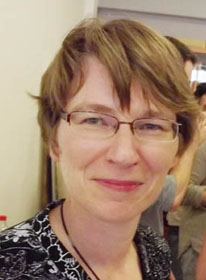Current projects
|
|
Project Ecos Nord - Minciencias (C22SA01, 01/2022-12/2024) : Reproduction, structure and habitat change in social insects in Colombia
Dr Chantal POTEAUX (LEEC, Université Sorbonne Paris Nord, France) and Prof Inge ARMBRECHT (Universidad del Valle, Cali, Colombia)
In recent years, a large number of studies have been carried out on the impact of human activities on biodiversity, both on the modification of life history traits of species that allow them to adapt to these disturbances and on the scale at which these disturbances may occur. These changes are particularly marked for insects, whose decline may have serious consequences on the ecological services they provide in nature. Our project focuses on the consequences of habitat modification for different species of social insects (the ant Gnamptogenys bisulca, the bee Tetragonisca angustula, and the termite Embiratermes neotenicus), impacted by habitat fragmentation, here mainly in western Colombia. These habitat changes lead to a reduction in the size of the populations present and contribute to their geographical isolation, both of which can lead to a decrease in genetic diversity and thus reduce the species’ capacity to adapt to ecological changes, particularly climatic ones. We will therefore characterize the social organization (type and number of reproducers) and the genetic diversity of populations for each of the species collected in different environments, by comparing natural and disturbed habitats. The genetic structure of the populations and their differentiation at different scales according to ecological factors that may explain their dispersion/isolation will be studied using different genetic (mitochondrial and nuclear) markers.
This project represents an excellent opportunity to complete previous sampling that led to highly promising genetic findings on two of the above-mentioned species, in order to test the resulting hypotheses, and to develop this problematic on a third model species common to both research teams in France and Colombia.
Projet Ecos Nord - Minciencias (C22SA01, 01/2022-12/2024): Reproduction, structure et changement d’habitat chez les insectes sociaux en Colombie
Dr Chantal POTEAUX (LEEC, Université Sorbonne Paris Nord, France) et Pr Inge ARMBRECHT (Universidad del Valle, Cali, Colombie)
Ces dernières années ont vu se développer un grand nombre d’études portant sur l’impact des activités humaines sur la biodiversité, tant sur la modification des traits d’histoire de vie des espèces leur permettant de s’adapter à ces perturbations que sur l’échelle à laquelle ces perturbations peuvent porter. Ces modifications sont particulièrement marquées pour les insectes, dont le déclin risque d’entrainer des conséquences graves sur les services écologiques qu’ils assurent dans la nature. Notre projet porte sur les conséquences de la modification de l’habitat de différentes espèces d’insectes sociaux (fourmi Gnamptogenys bisulca, abeille Tetragonisca angustula, et termite Embiratermes neotenicus), impactées par la fragmentation de l’habitat, ici essentiellement dans l’Ouest de la Colombie. Ces changements d’habitats entrainent une réduction des tailles de populations présentes ainsi que leur isolement géographique, ces deux facteurs pouvant aboutir à une baisse de diversité génétique et donc réduire leur capacité d’adaptation aux changements écologiques, notamment climatiques. Nous caractériserons donc l’organisation sociale (type de reproducteurs, nombre) et la diversité génétique des populations pour chacune des espèces collectées dans différents milieux, en comparant habitats naturels et perturbés. La structure génétique des populations et leur différenciation à différentes échelles en fonction des facteurs écologiques pouvant expliquer leur dispersion/isolement seront étudiées à l’aide de différents marqueurs génétiques (mitochondriaux et nucléaires).
Ce projet représente une excellente opportunité de compléter des échantillonnages antérieurs ayant abouti à des résultats génétiques très prometteurs sur deux des espèces citées, afin de tester les hypothèses qui en ont découlé, et de développer cette problématique sur une troisième espèce-modèle commune aux deux équipes de recherche en France et en Colombie. |
